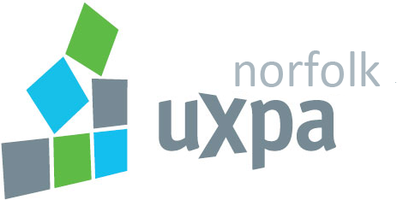 With more and more articles (and public comments) such as this published everyday in Hampton Roads, in print and online, it only reinforces the dire need for a community-wide, grassroots "Visioning" process.
With more and more articles (and public comments) such as this published everyday in Hampton Roads, in print and online, it only reinforces the dire need for a community-wide, grassroots "Visioning" process.
From the pages of the Daily Press:
Tolls and more
Leasing the bridges and tunnels will get you only so far
August 26, 2008
Dwight Farmer has a long-standing habit, inconvenient for tax-a-phobic public office-holders, of sticking to the facts when it comes to roads and transportation. Recently he showed up before the Williamsburg City Council, true to form.
And what he said is worth contemplating, especially as the Labor Day weekend traffic jams loom.
Tolls won't get Virginia out of its congestion problems, said Farmer, executive director of the Hampton Roads Planning District Commission. Not by themselves. And not without some driver pain and political pushback when the tolls get implemented.
Yes, leasing infrastructure is one way to get a public-private push behind road building. The state essentially subcontracts its tolling authority and lets a private business handle the toll collections, thereby providing a revenue stream to build and maintain highways.
And tolls are paid by the users, which is the right principle for road-funding.
But to tout tolls as the be-all and end-all, the easy way to the bright, far side of a darkening tunnel of congestion? No, says, Farmer. You can't get there from here just by tolling. The state — that means the taxpaying public — is going to have to put up some major dough.
And that's the part many state legislators pray to avoid — avoid like the plague, in fact, because they have consistently held out the absurd proposition that you get new roads built without the bother of new taxes.
Now it's going to get more problematic, as news rolls out of significant revenue shortfalls in the state budget. And that means shortfalls for everything, not just roads. With education funding now in direct competition with road needs, along with other state priorities, the overall situation promises to be strained, indeed.
Further, with highway maintenance needs digging deeper into the state budget, Virginia may lose its ability to draw down federal matching highway funds, perhaps as soon as 2014.
Even if fiscal life at the state Capitol was all roses and sunshine, the heavy lean on road tolling has a half-life that can be measured by the amount of time it will take drivers to figure out they're still paying the bill.
In order to romance road leasing, state legislators have loudly referred to "private funding," while whispering the part about "big tolls." Farmer calculates that if the Hampton Roads Bridge Tunnel had been built and maintained by tolls alone, adjusting for inflation, drivers today would be forking over $10 every time they crossed.
Or, how about the proposed re-building of Route 460 along the south side of the James River between Petersburg and Suffolk? As once envisioned, passenger cars would pay $10-$12 each way, with trucks paying $30. And the state would still have to throw in another $50 million per year to finish the project.
What does Farmer predict, failing a big push on road funding by the state?
"Eventually we'll lose economic connectivity between the Peninsula and South Hampton Roads, and they will develop as two separate areas," he said.
Now, there are some in Williamsburg and even lower on the Peninsula who wouldn't mind that. But such fragmentation spells less and less political power, and less and less economic power.
That is not a formula for prosperity.
Be sure to read the comments, too, to gauge the range of public sentiment, at least the vocal ones, on topics such as this. Now, we need to find out how everyone feels, not just the vocal few.
Special note to commenter Reid: "flying cars"? sounds a little like the chaos of the movie "The Fifth Element", huh? :-)
Want to know more about "Visioning", leave your comment here with an email address and I'll share!
To share this post, here is a short URL: http://tinyurl.com/Visioning1





















2 comments:
Count me in! I'll email you directly, I want to learn more about this "Visioning" you mention.
after the SF fires (twitter use) began reaching out to local cities. business. Was too early. Started building the foundation so that when the time came would be ready.
About the same time .... Have a friend that was looking for a solution to VDOT's weak/lost/dropped AM radio signal along stretches of the State's highway's & Interstate. Threw a few ideas out specific to AM radio, (not my expertise): use guardrail as antenna, repeaters (same as two way walkie talkies and/or cell towers). But I believe the use of web 2.0/social networks (complimenting existing VDOT services) can help to reduce congestion, get info out, communicate with local cities and emergency responders.
I am of the opinion that web 2.0 tools are especially useful for special events and emergencies. Traffic being just one area to benefit.
Tiers or layers of communication:
Public follows one or more Government & industry Twitter accounts. Cities follow/following each other. Feed to one Emergency Twitter account that is only used in specific cases, hurricanes are one scenario.
So much more to this. Naming scheme. RSS and email, provider (cell/ISP). Cost must be considered. There will be, in the near future, changes to many of the currently Free social apps. Potentially this might effect business & governments first. My guess is that the solutions (to users) will decrease other costs and either balance out or more likely (IMO) SAVE money.
Business (retail, hospitality, health care, others) all participate/cooperate as well.
Thanks for providing an opportunity to share.
Dave
Post a Comment